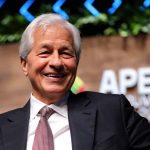Health Minister Greg Hunt on Monday announced he had tasked the Australian Technical Advisory Group on Immunisation (ATAGI) with reviewing the current booster shot program, with a third vaccine currently recommended six months after a person has received a second dose.Mr Hunt said Australia already had sufficient supply of the Pfizer vaccine for use as a booster on shore if ATAGI amends its advice and rules the shot is required sooner than expected.“We will as ever allow (ATAGI) to act independently and continue to follow their advice,” he said. “If they recommend changes, we will follow those changes.”Mr Hunt also said Australia’s existing deals with Pfizer and Moderna for future doses included if there are ever any new generations of vaccine able to combat variants.MORRISON TO HOLD EMERGENCY MEETINGSState and territory leaders will meet with the prime minister on Monday for an emergency national cabinet session to review the decision to reopen borders to international students and migrants amid the emerging omicron variant.All visa holders with proof of vaccination are set to be allowed entry into Australia from December 1 and would not be required to undertake any quarantine in NSW, Victoria or the ACT.Scott Morrison said officials would carefully consider the reopening plan in light of the omicron variant, which is so far believed to be more infectious than previous strains but still only causing mild disease in fully vaccinated patients.On Monday morning Mr Morrison stressed the importance of responding calmly and carefully to the new variant.“We will consider that in the light of all the new information and what we have to do to deal with this,” he told Channel 7.“This isn’t the first of the new strains we have seen, and the evidence to date does not suggest it is a more severe form of the virus and issues of transmissibility and impact on the vaccine, there is no evidence yet to suggest there are issues there.“But should that information come forward, then obviously we will be considering that and moving very quickly, as we already have on the information that has been available to us today.”Mr Morrison will also meet with national security officials to discuss omicron on Monday.He said the decision by NSW and Victoria to impose a 72 hour quarantine for all overseas arrivals had bought health and other experts time to review the evidence about the variant from around the world. OMICRON ‘LESS SEVERE’: MORRISONThe omicron variant appears “less severe” even though it may be more transmissible, with vaccination, including a booster shot when eligible, the best defence against the virus.Mr Morrison said while omicron was “obviously a variant of concern,” it was also the 13th to be identified since the pandemic began meaning now was the time to “stay calm”.“With this variant, we know it could be more transmissible. But we also know it’s proving to be less severe. So we just take this one step at a time. Get the best information,” he told Channel 9. “If anything (the evidence is) suggesting a lesser form of disease, particularly for those who are vaccinated. One thing everybody can do is get vaccinated.”Mr Morrison said with 86.7 per cent of Australians fully vaccinated and the country well on the way to 90 per cent, the next step was ensuring people got a third booster shot six months after recovering their second dose.NED-5052-Covid-19-super-variant“We have one of the few whole of population booster programs under way, if it’s been six months since the second jab, please go out and get booster shot,” he said.“These booster shots also obviously get updated all the time as the drug companies work on improving those.”Mr Morrison said it was not currently the health advice to bring forward boosters to four or five months. “Medical advice is it’s effective after the six months,” he said. For many people that will be, you should be getting the booster shot now. I had mine the other week. I’ve been encouraging those who are ready for booster shots to get it.”The prime minister also said he would “never rule anything out” in terms of measures Australia might need to take against omicron if health officials advise it. “We never rule anything out,” he said. “No-one should read into that. We will take decisions based on the best information.”Mr Morrison said case numbers were “not the issue” in Australia any more, including for states with plans to reopen domestic borders before Christmas.“It’s about whether people are getting a worse illness or it’s going to put stress on your hospital system,” he said.“What we’ve seen in the states that have had these high case numbers is that the hospital impacts have been less than we anticipated on that (Doherty Institute) modelling.”NSW PREMIER: WE INTEND TO REOPENOn Sunday, the NSW Premier remained firm on the state’s intention to open to the world, relying on strict testing and greater scrutiny of international arrivals’ travel history.As two travellers from southern Africa who arrived in Sydney on Saturday were confirmed as Australia’s first known cases of Omicron, NSW Health Minister Brad Hazzard fired a broadside at the World Health Organisation (WHO) for being slow to sound the alarm.Though NSW Health has begun quiet and cautious background preparation for the undesirable scenario of returning to home isolation or even hotel quarantine, a senior state government source said the focus would be on hospitalisation and health outcomes rather than case numbers. Premier Dominic Perrottet on Sunday said the state’s reopening road map would continue without any changes, confirming he had spoken to Prime Minister Scott Morrison to get a “uniform approach” to omicron across the states. “Ultimately we need to learn not just along the virus but also along the variants as well,” Mr Perrottet said. It can also be revealed Commonwealth officials are forging ahead with long-term planning to deal with Covid-19 as an “endemic” disease, potentially treating future variants with vaccines seasonally like the flu.Daily Telegraph – News Feed latest episodeThe two Omicron Covid-19 variant cases detected in NSW were asymptomatic and fully vaccinated. They are in isolation in special health accommodation. A further 12 passengers on the flight also from southern Africa are undertaking 14 days of hotel quarantine, while a further 260 people on the plane considered close contacts have been directed to isolate.Mr Hazzard said tracking people in NSW recently returned from the high-risk countries had proven difficult because border officials had only asked “loose” questions prior to omicron warnings being issued by the WHO on the weekend.“It probably hasn’t been all that helpful that the World Health Organisation has really put out the announcements recently when they’ve known about it since about three weeks ago,” he said.“The (passenger) information is not as precise as health authorities would like but it‘s understandable.“Now we wish we had more information.”Mr Hazzard said it was “safe” to assume flights from around the world would bring more omicron to Australia, not just the nine countries in the southern Africa region identified as high-risk.“It’s not practical to expect that shutting down flights from nine other countries is going to work,” he said.Mr Hazzard said NSW Health and Australian Border Force had been working “very well” together tracking down travellers recently arrived from southern Africa, but warned authorities were finding more many arrivals from hot spots than expected. He said NSW was working closely with Victorian authorities as the “two states that are not only open to the world,” but also not imposing a blanket hotel quarantine.“Some of the other states are still well behind. They haven‘t even faced up to delta let alone the newest iteration of the virus,” he said.On Sunday Queensland’s acting chief health officer Peter Aitken said the state had no plans to change its long-awaited December 17 domestic border reopening. “I can’t put a 100 per cent guarantee on anything,” he said. “But we’re watching, and at this stage, there’s no … evidence to support a change in position.”According to the WHO, the earliest known case of Omicron was November 9, and the mutation was first detected on November 24 in South Africa. Named Omicron after a letter in the Greek alphabet, the variant has more than 30 mutations in its spike protein, which is the structure the virus uses to get into the cells it attacks. It is not yet known if the omicron is more deadly or likely to infect fully vaccinate people, with initial reports suggesting it could be behind a recent spike in infections in South Africa. In an effort to buy time until more is known about the variant, Australia on Saturday suspended flights from South Africa, Namibia, Zimbabwe, Botswana, Lesotho, Eswatini, the Seychelles, Malawi, and Mozambique suspended for 14 days, banning non-citizens who had recently travelled to those countries from entering. NSW and Victoria also required all recent international arrivals and their household contacts to isolate for 72 hours.NAT – Stay Informed – Social Media
Powered by WPeMatico






